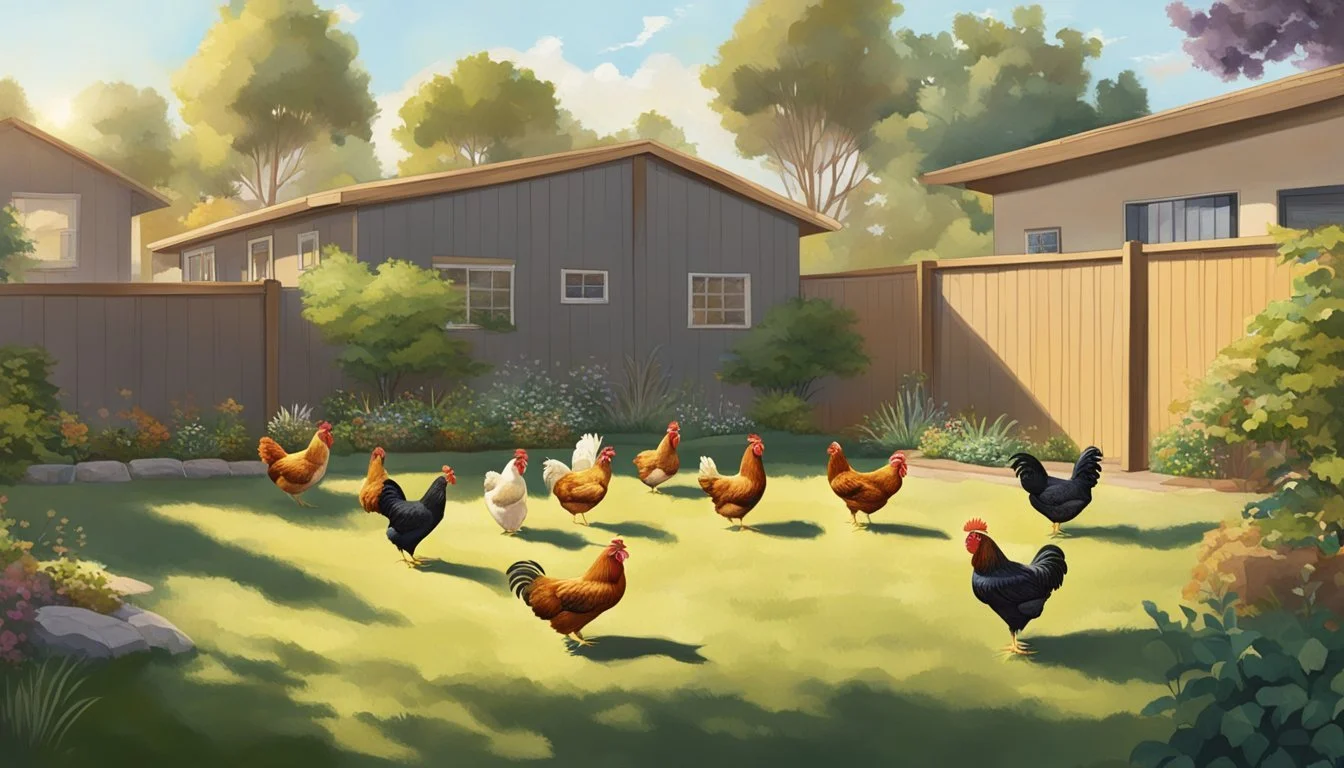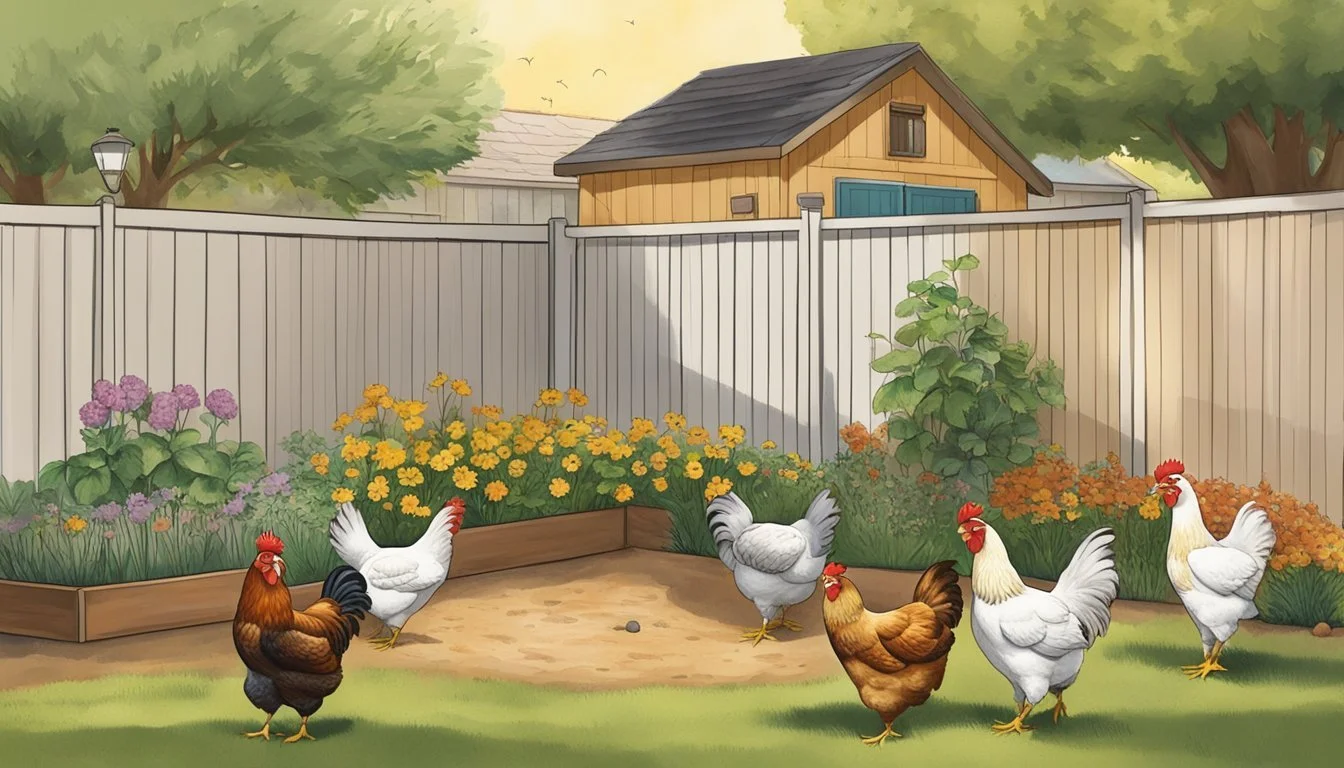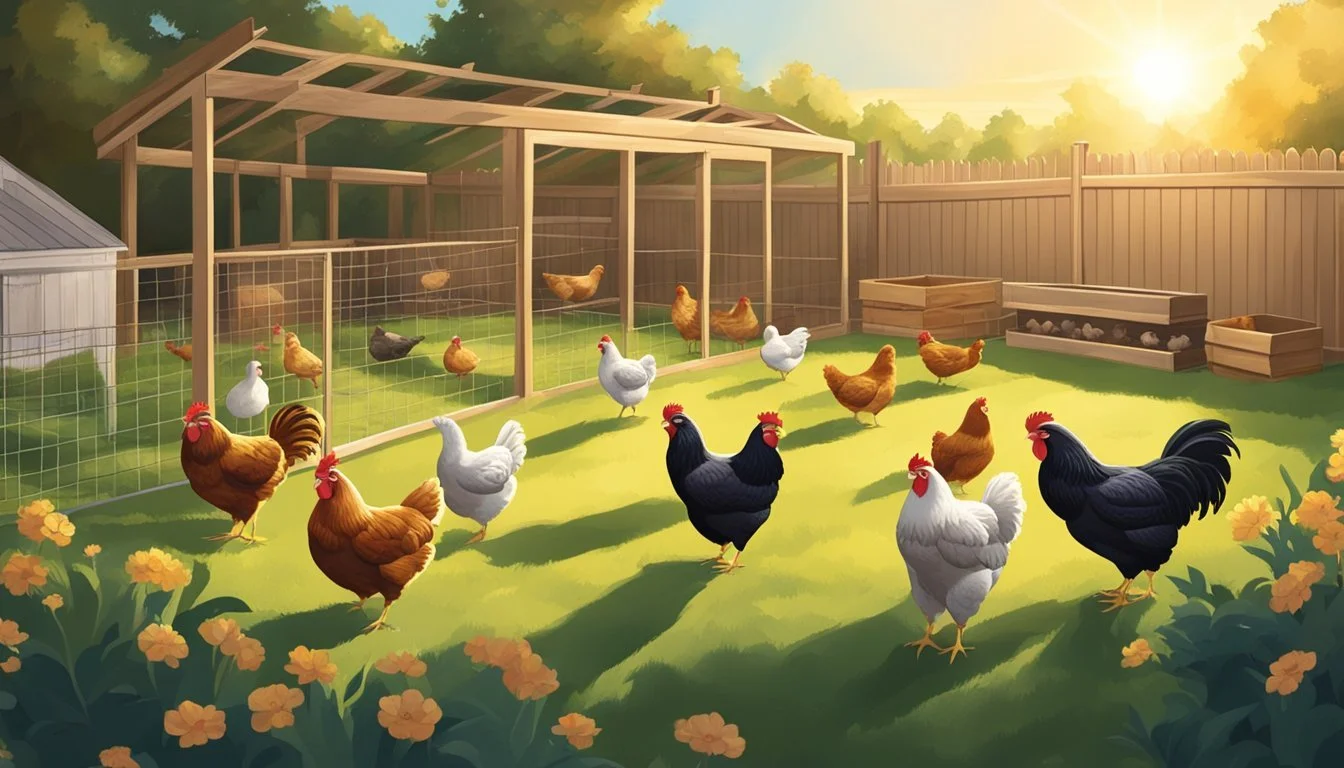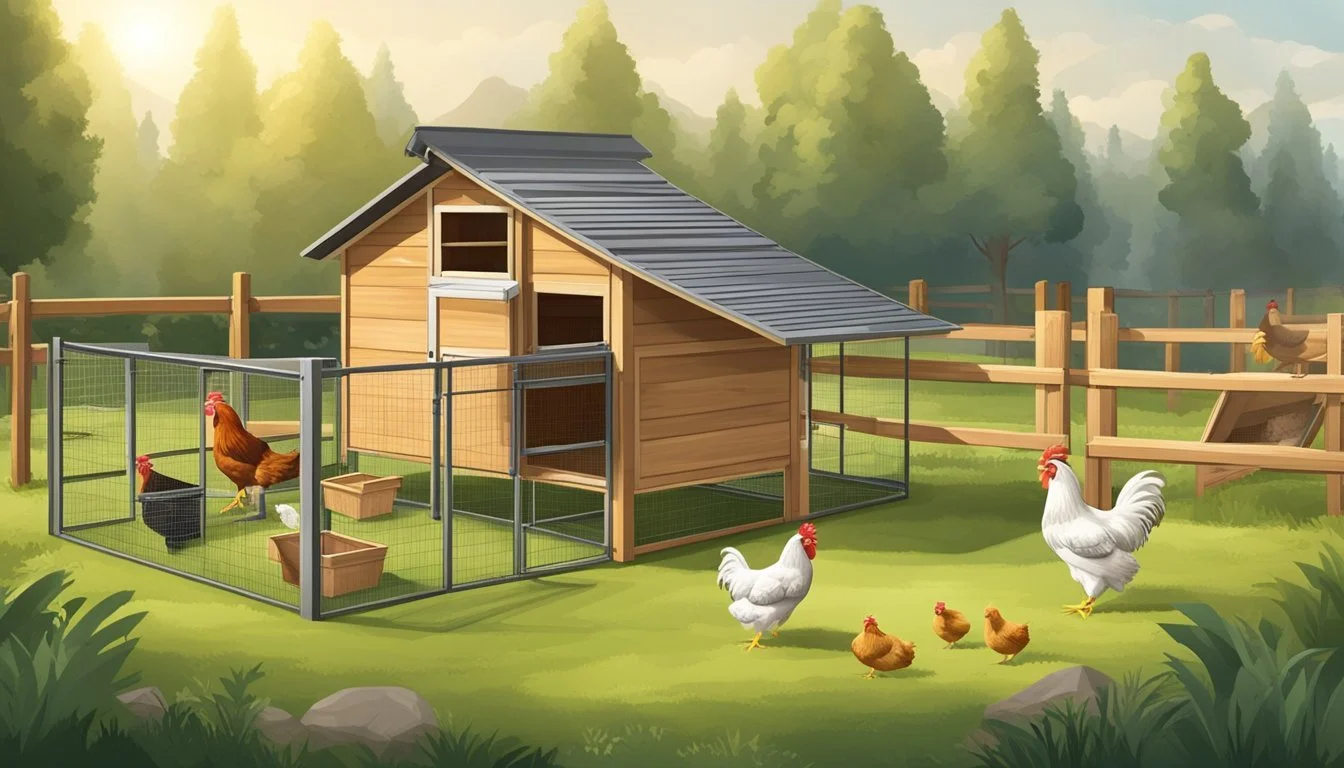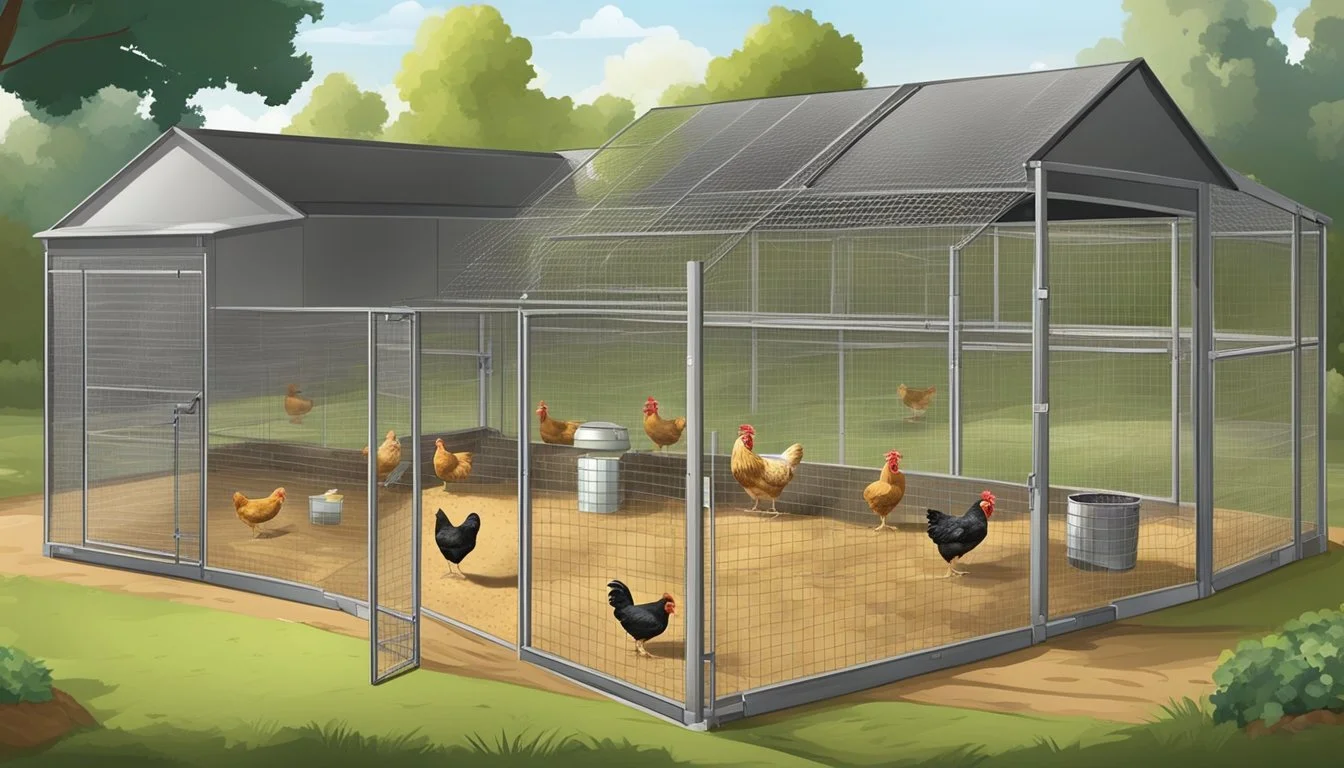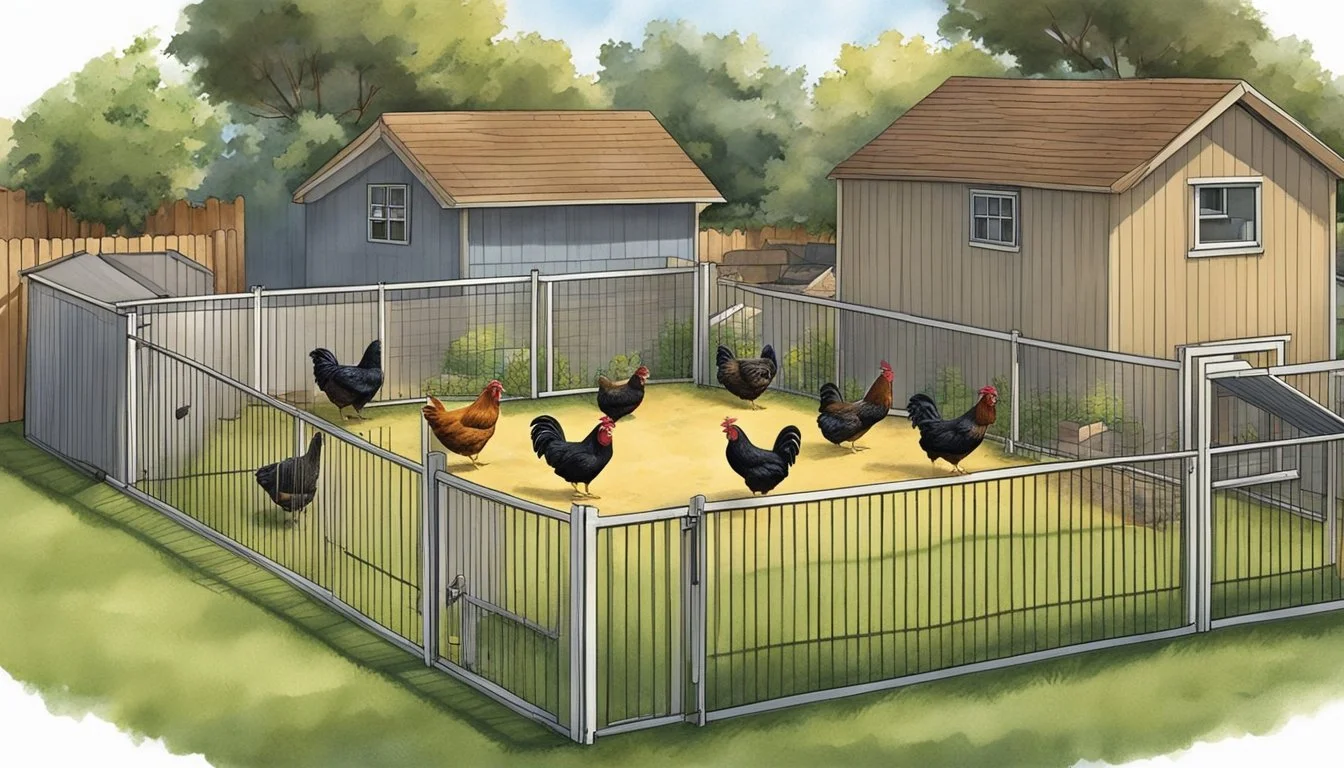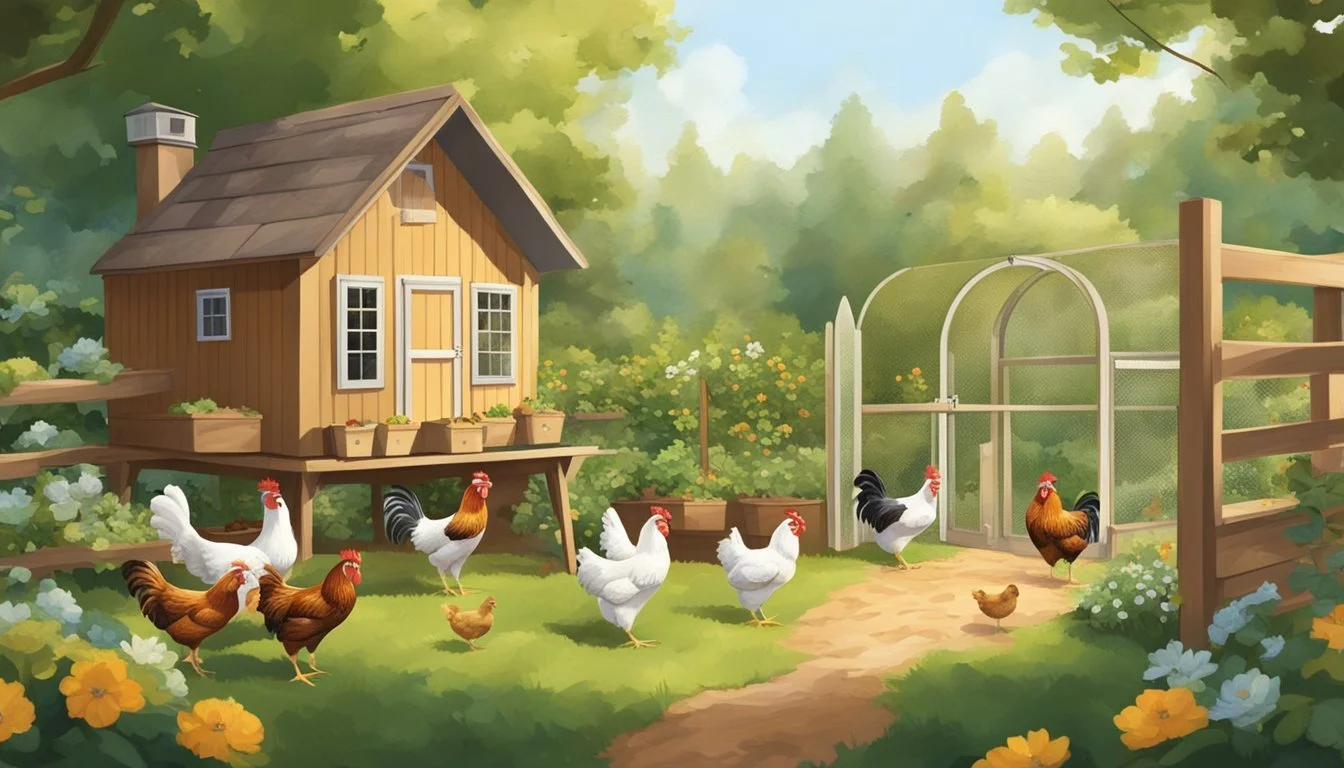Keeping Backyard Chickens in Downey, CA
Essential Tips for Urban Poultry Farmers
Keeping backyard chickens has become increasingly popular in urban areas, offering residents the chance to enjoy fresh eggs, natural pest control, and the pleasure of caring for these animals. In Downey, California, residents considering this venture must navigate specific municipal regulations designed to balance urban farming interests with community welfare and public health.
The city of Downey outlines clear guidelines under Section 4605 concerning the keeping of animals, birds, and fowl, indicating under what circumstances and conditions residents may raise chickens on their property. The ordinance ensures that the keeping of chickens does not disturb the peace or comfort of neighboring inhabitants through noise or other disruptions.
Compliance with local ordinances is fundamental for would-be poultry keepers in Downey, as it is in many California cities where similar considerations apply. Adhering to these rules contributes to a harmonious community and a successful experience in raising backyard chickens.
Understanding Local Ordinances in Downey, CA
Downey, California, maintains specific local ordinances that regulate the keeping of backyard chickens. Homeowners must navigate city-specific laws, permitting requirements, zoning considerations, and other rules to ensure compliance.
City-Specific Chicken Laws
In Downey, homeowners cannot keep animals or fowl that disturb the peace or comfort of neighboring residents through sound or cry. The City Clerk’s Office can provide additional information on these restrictions.
Permitting Requirements for Keeping Chickens
A permit is often required to keep chickens within city limits. Residents should contact Downey’s local animal control or Code Enforcement Division to understand the specific permitting process and any associated fees.
Zoning and Property Line Considerations
Zoning laws dictate where chickens may be kept, often based on the property's designation and distance from property lines or neighboring houses. Downey's municipal codes outline these restrictions, and it's crucial to review them before setting up a coop.
Restrictions on the Number of Chickens and Roosters
The number of chickens and whether roosters are allowed can vary. Downey may have limitations on how many chickens a homeowner can keep and may prohibit roosters due to noise considerations.
Other Related Animal Ordinances
Residents must also adhere to wider animal control laws, such as proper maintenance and sanitation of the area where chickens are kept. These ordinances aim to protect both the community and the animals within the city.
Compliance with homeowner association rules may also be required if such regulations exist in one’s residential area.
Selecting Suitable Chicken Breeds for Downey
When choosing chicken breeds for a backyard flock in Downey, California, it is essential to consider traits and adaptability, climate compatibility in the region, and the egg production capabilities of the breed.
Traits and Characteristics
A variety of chicken breeds possess traits that make them favorable for backyard flocks. Jersey Giants, for instance, are large, docile birds that can integrate well into a mixed flock. They are known as friendly birds and cope well with other chickens. It is crucial to consider the temperament and size of the chicken breed to ensure a harmonious backyard environment.
Climate Compatibility
Downey's climate is typically warm with mild winters. Chicken breeds that are adaptable to this type of climate include those that can tolerate heat well. Leghorns excel in warmer climates and are known for their hardiness. Heat-tolerant breeds typically have larger combs and wattles which help them regulate body temperature.
Egg Production Expectations
For egg production, certain breeds are more prolific layers than others. Rhode Island Reds and Plymouth Rocks are reliable choices for consistent egg layers, providing an abundant supply of eggs. One should research the average egg production rates of these breeds:
Rhode Island Reds: Approximately 200-300 eggs per year.
Leghorns: 280+ eggs per year with excellent feed-to-egg conversion rate.
A potential backyard chicken keeper in Downey should thoroughly research local ordinances, space requirements, and the care needs specific to each breed before making their final selection.
Designing and Building a Chicken Coop
When designing and building a chicken coop in Downey, CA, it is crucial to ensure adequate space, protection from predators, proper ventilation, and light along with appropriate inclusions like nesting boxes and roosts.
Space Requirements and Calculations
Each chicken requires at least 3-4 square feet of space inside the coop and about 8-10 square feet in an outdoor run. For ten chickens, one would need a coop of at least 30-40 square feet and an outdoor run of at least 80-100 square feet.
Indoor Space: 10 chickens x 4 square feet = 40 square feet
Outdoor Run: 10 chickens x 10 square feet = 100 square feet
Protecting Against Predators and Diseases
To protect against predators, such as coyotes and raccoons, and prevent diseases, the coop should be secured with hardware cloth, not chicken wire, which deters predators from entering. Regular inspections for holes or weak points are essential.
Security: Use 1/4 inch hardware cloth for windows and runs.
Inspections: Check monthly for breaches or signs of gnawing.
Ensuring Adequate Ventilation and Light
A well-ventilated coop keeps air fresh and reduces humidity, which minimizes the risk of respiratory diseases. Windows or vents higher in the coop allow for light entry and air circulation without creating drafts at the roost level.
Vent Placement: Include vents near the roof to release warm, moist air.
Window Ratio: At least one square foot of window per ten square feet of floor.
Incorporating Nesting Boxes and Roosts
Nesting boxes should be easily accessible for both chickens and owners, with one box for every 3-4 chickens. Roosts should be designed for every bird to have approximately 8-12 inches of space with the addition of a poop board below to aid in cleanliness.
Nesting Boxes: 10 chickens / 4 = 2-3 boxes.
Roost Length: 10 chickens x 1 foot = 10 feet of roosting space.
Maintaining Cleanliness and Sanitation
Keeping a coop clean and in sanitary condition is essential. Use removable trays for easy cleaning and consider surfaces that can be sanitized. Regular cleaning prevents the buildup of ammonia and pests.
Cleaning Schedule: Clean dropping boards daily; Full clean monthly.
Materials: Non-porous materials for all surfaces to ensure thorough cleaning and disinfection.
Daily Care and Maintenance of Backyard Chickens
Maintaining a healthy flock of chickens in Downey, CA, requires a consistent daily routine centered around proper feeding, vigilant health monitoring, and regular cleaning. These tasks are crucial for the wellbeing of the poultry and ensure a productive and disease-free environment.
Feeding and Nutrition
Chickens require a balanced diet to remain healthy and productive. Owners should provide:
Chicks (0-8 weeks): 18-20% protein starter feed in crumble form.
Growers (8-14 weeks): 16-18% protein starter/grower feed.
Layers (15-18 weeks and older): 16% protein finisher or layer feed.
A feeding schedule is essential, with feeders being filled in the morning and checked in the evening. Clean water must be accessible at all times, with containers cleaned and refilled daily to prevent algae and bacterial growth.
Health Monitoring and Veterinary Care
Regular observation is key for detecting potential health issues early. Owners should look for:
Signs of distress or unusual behavior.
Feathers' condition.
Any respiratory symptoms or limping.
Veterinary care should be administered as required, with vaccinations and deworming being integral parts of preventative care. Consider composting waste responsibly to promote sustainability and reduce pests that could affect the chickens' health.
Routine Cleaning Procedures
A clean coop is mandatory for preventing disease and pests. Weekly cleaning should include:
Removing waste: Daily from coop floors and nesting boxes.
Changing bedding: Completely replace shaving or straw in nesting areas weekly.
Disinfecting waterers and feeders regularly to prevent mold and diseases.
Implementing these daily care and maintenance routines will ensure the health and happiness of backyard chickens in Downey, CA, fostering a thriving home flock.
Understanding the Legalities of Egg Sales and Slaughtering
In Downey, California, individuals interested in selling eggs from backyard chickens and engaging in slaughtering must adhere to state and local regulations. It is crucial for producers to understand these requirements to operate within the law.
Regulations on Selling Eggs
In California, individuals selling eggs must comply with specific health and safety standards. They are required to:
Label egg cartons with their name, address, and the statement "Safe Handling Instructions."
Grade eggs according to the California Department of Food and Agriculture (CDFA) quality standards, though selling ungraded eggs directly to consumers is often permitted.
Ensure eggs are washed and sanitized before sale.
Maintain proper refrigeration of eggs at 45 degrees Fahrenheit or below.
Local ordinances may also dictate:
The maximum number of eggs that can be sold without additional licensing.
Restrictions on selling locations such as farmers' markets or roadside stands.
Restrictions on Slaughtering Chickens
The state of California has certain restrictions in place for slaughtering backyard chickens, which typically include:
Humane treatment: Chickens must be slaughtered in a humane method that causes the least amount of stress and pain.
Sanitation: The process must be conducted in a sanitary manner to prevent contamination and spread of disease.
Disposal: Proper disposal methods for waste and by-products must be followed as prescribed by local health regulations.
Local Downey ordinances may impose additional rules, such as:
Restricting the areas where slaughtering can occur.
Limiting the number of chickens that can be slaughtered within a certain timeframe.
Requiring permits for slaughtering chickens.
Individuals must confirm with Downey's city ordinances to ensure all local legalities are met. Compliance with both state and local laws is essential for the legal sale of eggs and slaughtering of chickens in Downey.
Community Involvement and Education
In Downey, California, community participation and education are essential for anyone interested in raising backyard chickens. Engaging with local poultry enthusiasts and availing oneself of educational resources ensures responsible poultry management and neighborly harmony.
Joining Local Poultry Clubs
Local poultry clubs offer a platform for chicken owners to connect. Membership in these clubs provides access to experienced poultry keepers who can share insights on the best practices for raising chickens in Downey. These clubs often organize events, where members can learn about various aspects of poultry care, from feeding and housing to disease prevention.
Attending Workshops and Seminars
Workshops and seminars are valuable resources for both prospective and current chicken owners. These educational events are typically led by experts in the field and cover a wide range of topics:
Nutrition: Understanding the dietary needs of chickens.
Coop design: Learning about the requirements for safe and comfortable chicken housing.
Healthcare: Recognizing and addressing common health issues.
Local ordinances: Familiarizing with Downey's specific regulations regarding backyard poultry.
Attending these events contributes to a well-informed chicken-keeping community.
Sharing Resources and Learning from Neighbors
Sharing resources fosters a supportive community atmosphere. Seasoned chicken keepers can offer advice and practical help to newcomers, which might include:
Lending or exchanging equipment
Providing recommendations for local veterinarians
Sharing excess feed or supplies
This neighbor-to-neighbor learning strengthens community bonds and helps maintain a peaceful coexistence between chicken keepers and their neighbors who may not keep poultry.
Navigating Neighbor Relationships and Noise Concerns
Keeping backyard chickens in Downey, California requires careful consideration of the neighbors' quality of life, specifically addressing potential noise and smell from the chickens. Here's how one can manage neighbor relationships and related concerns effectively.
Communication and Transparency
They should inform their neighbors about the intent to keep chickens, offering clear information on how they will manage the flock and mitigate noise. Inviting neighbors to discuss any concerns they might have can go a long way in fostering good relations:
Preemptive Dialogue: Reach out before getting chickens to gauge neighborly sentiment.
Informative Pamphlets: Provide literature on the benefits and realities of keeping chickens.
Addressing Noise and Smell Issues
Chickens generally create less disturbance than some common pets, but roosters are banned in many urban areas, including parts of Los Angeles, due to their crowing. Downey residents must ensure they're specifically adhering to local ordinances regarding noise:
Roosters: Avoid keeping roosters, as their crowing can be a significant source of noise complaints.
Coop Management: Regular cleaning to minimize odors and maintain a healthy flock.
Soundproofing Measures: Use of barriers and strategic coop placement to reduce sound.
Implementing Conflict Resolution Strategies
When issues arise, having strategies in place can help resolve conflicts without escalation:
Mediation Assistance: Use local community services that offer neutral third-party mediation.
Documented Agreements: Have written agreements on how to handle noise and disturbances.
By respecting neighboring residences and taking proactive measures, they can help ensure that their backyard chicken experience is positive for everyone involved.
Bird Health and Biosecurity Measures
Keeping backyard chickens healthy in Downey, CA, requires vigilance and proactive measures to prevent disease transmission while providing adequate care. Implementing stringent biosecurity measures is not just recommended; it's essential for the health of the birds and the safety of human handlers.
Preventing Disease Transmission
In Downey, bird owners must focus on preventing diseases such as Avian Influenza by minimizing contact between their flocks and wild birds, which are common vectors for the disease. Restricting access to the flock by keeping chickens in a secure pen helps reduce exposure to predators and disease carriers.
Sanitation: Regular cleaning of the coop and equipment, using disinfectants, is vital.
Controlled Access: Limiting the number of people and animals that come into contact with the flock.
Vaccination and Treatment Protocols
Vaccinations can play a role in maintaining flock health, protecting against prevalent diseases such as Marek's disease, Newcastle disease, and Infectious Bronchitis.
Vaccination Schedule: Adhering to a vaccination schedule tailored to the specific needs of the backyard flock.
Disease recognition: Prompt identification and treatment of sick birds is critical to prevent the spread of illness.
Biosecurity Best Practices
Biosecurity practices include physical measures and procedural steps that chicken keepers can undertake to keep their birds disease-free.
Isolation: New birds should be quarantined before being introduced to the flock.
Footbaths: Placing disinfectant footbaths at the entrance of the coop prevents the spread of pathogens.
Expansion and Breeding Strategies
When expanding a backyard chicken flock in Downey, CA, it's crucial to implement strategic breeding practices and manage growth to maintain a healthy and productive flock.
Understanding Genetics and Breeding Techniques
Selective breeding is a powerful tool to enhance specific traits in chickens. By selecting roosters and hens with desirable characteristics, one can influence the genetic makeup of future generations. The key steps in the breeding process include:
Selection: Choose breeding birds based on physical traits (phenotype), such as size, egg production, or feather color.
Mating: Pair roosters and hens deliberately to produce the desired traits in chicks.
Record-keeping: Document matings, hatchings, and growth rates to track and refine the breeding strategy.
Using colored leg bands, breeders can identify and separate different breeding groups, enabling better control over the genetics of the flock.
Managing Flock Growth and Age Diversity
To maintain a balanced age structure within a flock, one must regulate the hatching of new chicks and the replacement of adult birds. Implementing a managed growth strategy involves:
Scheduled Hatching: Plan hatchings to ensure a steady supply of birds at different life stages; incorporate intervals that align with the birds' natural life cycles.
Culling: Remove older or less productive birds from the flock to make room for younger, more vigorous individuals.
By integrating these practices, one can ensure that the backyard flock in Downey, CA, remains healthy, diverse, and sustainable.
Keeping Backyard Chickens in Downey, CA
Residents of Downey, California interested in keeping backyard chickens must adhere to specific regulations set forth by the city to ensure both the well-being of the chickens and the peace of the neighborhood. Key guidelines include:
Noise Control: Owners must prevent chickens from creating excessive noise that could disturb neighbors.
Sanitation: Proper maintenance of the coop is necessary to avoid odors and pests.
Confinement: Chickens must be kept in a secure yard or pen.
Regulation Highlights
Permitted Birds: Allowing certain types of poultry while excluding others helps prevent noise issues commonly associated with roosters.
Allowed: Hens
Prohibited: Roosters, noisy fowl
Zoning Compliances: Understanding local zoning laws is vital for legal chicken ownership. Specific zones may have different restrictions.
Space Requirements: A designated space is required for the enclosure, ensuring sufficient room for the chickens to live and roam safely.
Neighborhood Impact: The city emphasizes minimizing the impact on nearby residents, balancing urban agricultural interests with community comfort.
Contact Information
For clarifications or to obtain necessary permits, the City Clerk's Office is a resourceful point of contact:
Phone: (562) 904-7280
Address: City Clerk's Office, City of Downey
These measures reflect Downey's commitment to creating a harmonious environment where the interests of chicken enthusiasts and the wider community are respectfully managed.

